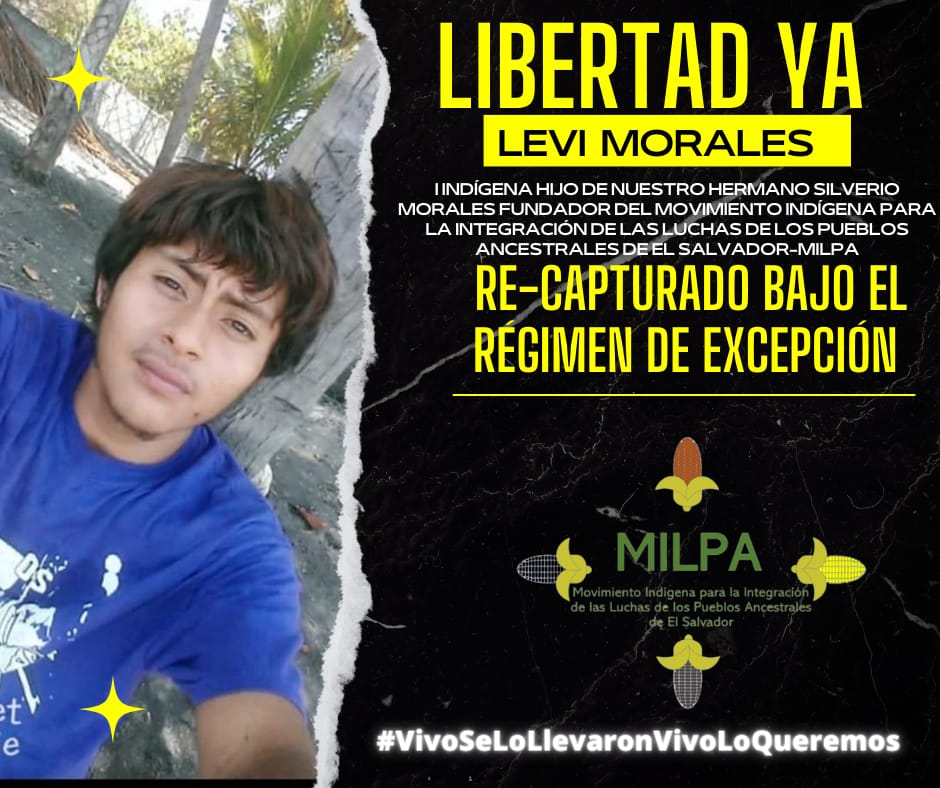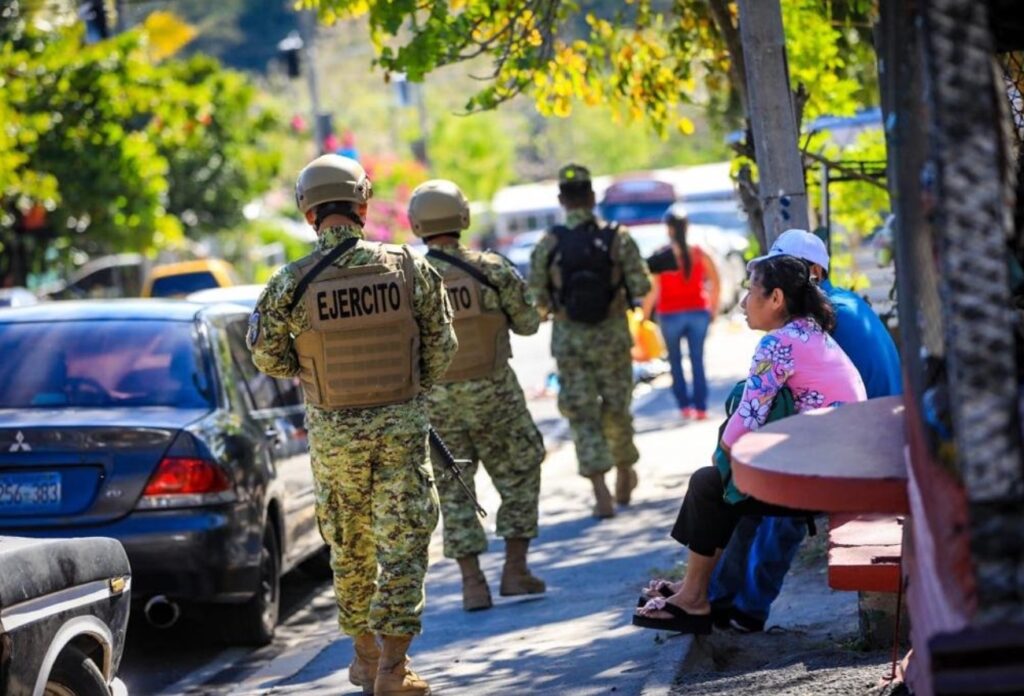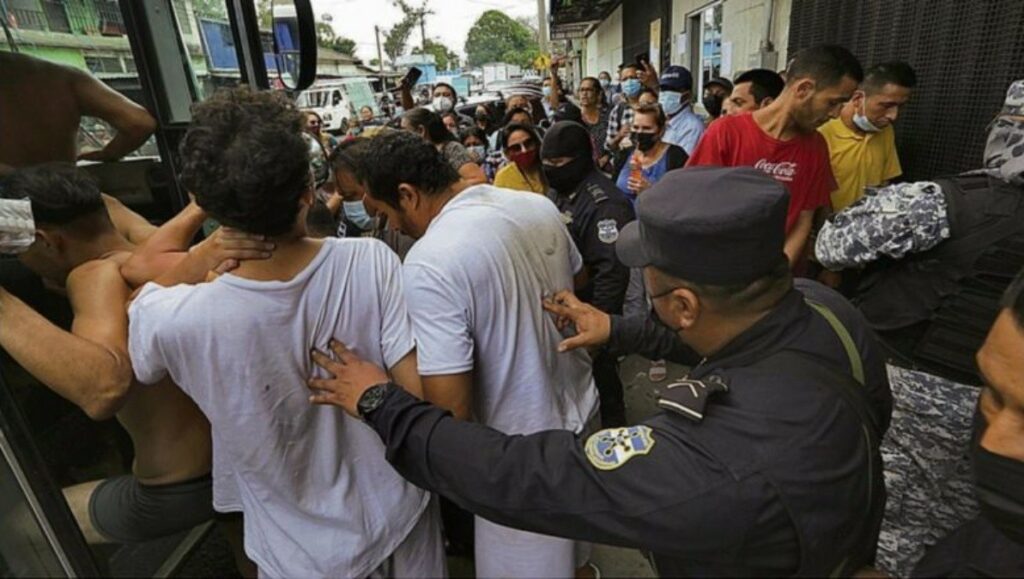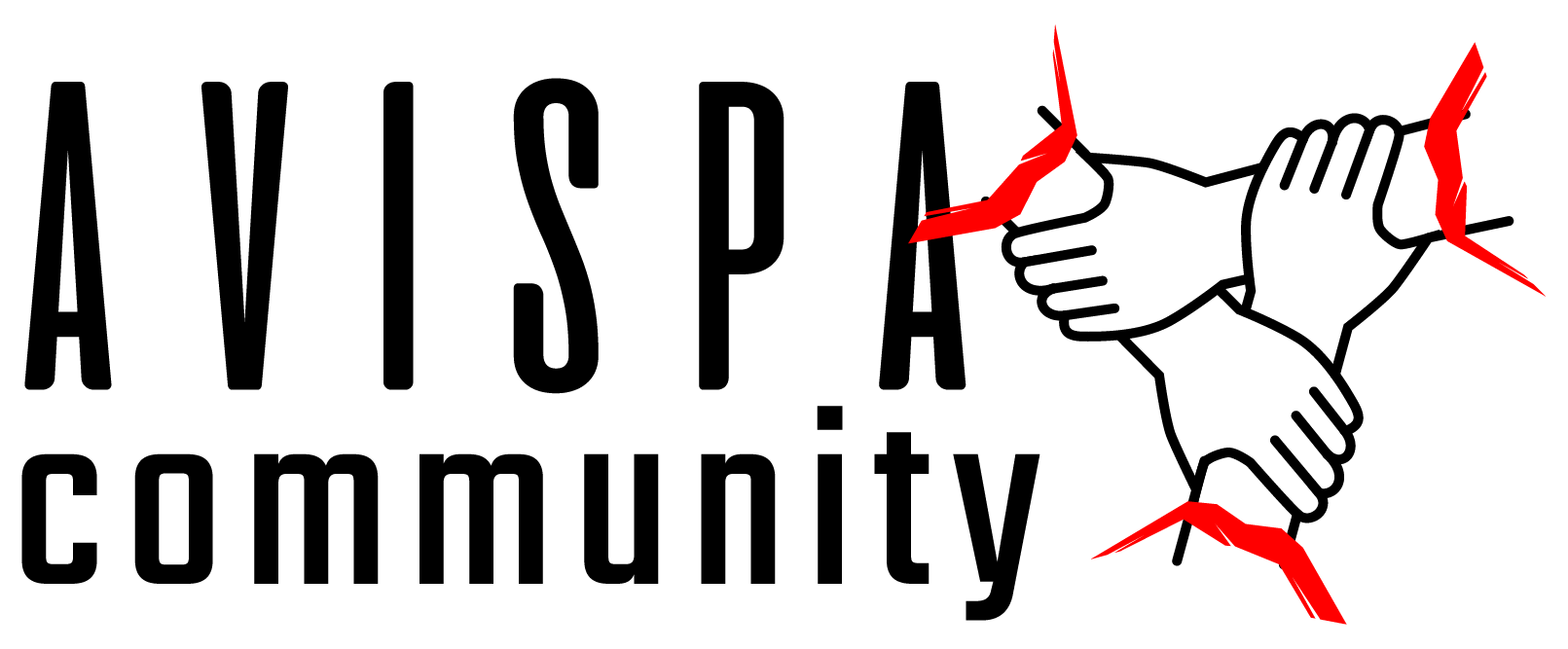The deployment of police and military forces in El Salvador during the ongoing state of exception, first declared in March of 2022, has set the conditions for serious human rights violations.
The young man Levi Morales is a member of the Movimiento Indígena para la Integración de las luchas de los Pueblos Ancestrales de El Salvador (MILPA). On November 11, 2022, when he was finishing a day of agricultural work in the municipality of Nahuizalco, he was detained by elements of the National Civil Police (PNC).
At that moment, more than seven months had passed since the state of exception was enacted by the Legislative Assembly in March 2022. Under the argument of combatting gang violence, which at the end of that month killed more than 80 people in only three days, the president Nayib Bukele requested and congress decreed the suspension of the right to legal defense of people detained, and extended the term of administrative detention up to 15 days.
Morales became one of the people captured and accused without evidence of pertaining to a criminal gang. Held for more than a year, the authorities never turned over evidence connecting the young Indigenous man to gang activity. Thus, on November 20, a court in the city of Santa Ana ordered his release.
Despite the request coming from the same National Attorney General’s Office, Morales was captured again following his release without any explanation or charges against him. He was transferred to the prison of Usulután, nearly 200 kilometers from his home.

During a press conference carried out on Monday, December 4, Ariela González, member of the Fundación de Estudios para la Aplicación del Derecho (FESPAD) and the defense lawyer of Levi Morales, pointed out that the authorities never notified the family of his release nor of the charges against him in his recapture. “We do not know who ordered his recapture nor the crimes of which he is being charged, if there is a new accusation or if we are facing a double persecution of the same supposed crime,” explained González.
Levi’s father, Silverio Morales, an Indigenous leader from the western part of the Central American country, has raised his voice to demand the liberation of his son. “I am a little afraid of doing this press conference because of the personal persecution against my family, because something similar happened to me last time. The military and police began to persecute me. We ask the public prosecutor’s office to release him,” he demanded.
Also present at the press conference were members of MILPA, La Mesa por la Soberania Alimentaria, La Asociación de Estudiantes de Derecho, and La Mesa Permanente por la Justicia Laboral, organizations that have documented due process violations in the case of the Morales family.
Attacks on Political Organizers
Something the different organizations accompanying the case of Levi Morales see in common is that the case is representative of what is happening repeatedly in El Salvador, specifically with arbitrary detentions as a strategy of repression of social struggles.
Ángel Flores, also a member of MILPA, explained that there is currently a process of reconcentration of land taking place in the Central American country through different economic initiatives that continue the dispossession of the communities, like projects planned for the coastal strip of El Salvador.
“In areas where there is a presence of Indigenous peoples and campesinos, there exists many interests in expanding mega investment projects, hotel complexes, processes of accelerated urbanization, and also of the turistification of territories…it is no coincidence that they are persecuting Indigenous leaders, environmentalists, women’s collectives, among other organized sectors that are active in our country, as they are an obstacle to the appropriation of the natural resources,” said Flores.

The deployment of police and military forces in El Salvador during the ongoing state of exception, first declared in March of 2022, has set the conditions for serious human rights violations.
The member of MILPA stressed that the attacks against Indigenous peoples are due to the fact that they are antagonistic to the forms of life that the economic and political elites seek to impose on the Central American country. “The attacks obey the interests of appropriating what is currently in the hands of the Indigenous and campesino communities of El Salvador,” he argues.
Militarization
On Tuesday, December 5, Amnesty International published a report where they accuse the Salvadoran government, led by president Nayib Bukele, of committing “repression and the regression” of human rights in El Salvador.
According to Amnesty International, the situation of repression represents one of the greatest crises in the country since the end of the armed conflict 32 years ago. Furthermore, the organization denounced that the policies of the authorities consolidate a “punitive model of public security,” which they constantly seek to make invisible.
Through interviews and monitoring, the human rights organization identified the restriction of the rights of the Salvadoran people and the implementation of policies that “expand militarization, repressive practices, and permanent legal reforms contrary to international human rights standards—particularly those related to a fair trial. This has set the conditions for serious human rights violations,” said Ana Piquer, director of Amnesty International for the Americas.

Arrests during the state of exception in El Salvador. Photo: La Prensa Gráfica
According to the organization, the illegal and massive detentions, forced disappearances, torture, and deaths which have occurred in state custody during the state of exception “are the product of a high level of state coordination and are taking place with the knowledge of the highest up authorities who many times incentivize and justify them.” Among the consequences of these actions, there exists a rise in patterns of self-censorship among journalists, media outlets, and social organizations.
The report shows that the state has a policy of systemic torture against people that have been captured during the state of exception, accused of pertaining to criminal gangs.
The detention of Levi Morales is one among more than 71,000 people detained as of October of this year, 19 months after the beginning of the state of exception, which continues to be extended every month by the Legislative Assembly.
Socorro Jurídico Humanitario is an organization that has documented the systemic detention of activists. According to their data, 17 union leaders have been detained and accused of criminal association and terrorism.
Ángel Flores of MILPA asserted that the case of Morales is an arbitrary detention, demanding that the Salvadoran government “end the criminalization, persecution, and incarceration of Indigenous, environmental, union, and social leaders along with their families, like is the case on this occasion…it is an extremely worrying situation because defenders of human rights, of the environment, and of collective and individual rights are being persecuted.”


